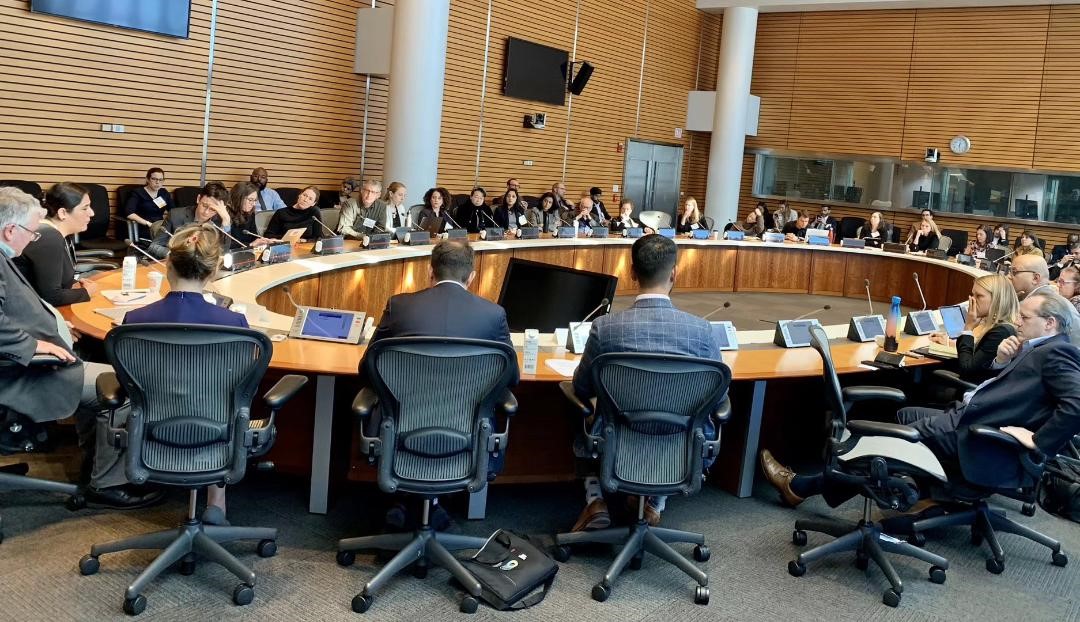|
On January 15, 2020, iCET, in conjunction with the World Bank Transport Global Practice, successfully held the third China E-Mobility Salon in Washington, DC, USA. With the core topic of China's electro mobility, the series of seminars mainly cover such topics as electrification, intelligence, net-connection etc. based on speeches and discussion. The theme of this salon is centered on the lessons learned and future expectations of China's electrification revolution. Partners from the World Bank, iCET, the World Resources Institute, the World Economic Forum and other institutions participated in the discussion.

Mr. Binyam Reja, the Transport Practice Manager for Central Asia, China, and Mongolia of World Bank delivered a keynote speech on China's experience in electrification. Today, China has achieved remarkable results in its efforts to achieve full electrification of transportation. As of 2018, China has achieved its goal of selling 2 million new energy vehicles by 2020. In addition, more than 30 cities in China have announced plans to fully electrify taxis and buses by 2022. China has now become the world's largest automotive market and the largest crude oil importer. Over 70% of its crude oil comes from imports. The road transport sector accounts for 48% of China's total oil consumption and 80% of its total refined oil consumption. Experts and specialists agree that China's efforts to get rid of internal combustion engine vehicles (ICEV) will have a positive impact on the global automotive and oil markets, and China's electrification experience can provide valuable lessons for other countries in this area.
Dr. An Feng, Executive Director of iCET, Ms. Yang Chen, Senior Transport Specialist at the World Bank, Mr. Liu Daizong, Director of the China Sustainable Project at the World Resources Institute (WRI), and Ms. Annika Berlin, Urban Transport Specialist at the World Bank introduced and shared their research. Dr. An Feng introduced the study of the timetable to Ban ICEVs, and introduced iCET's research on the impact of realizing the full electrification of transportation on China's oil demand. The study believes that by 2050, the fuel consumption of vehicles is expected to decrease by 80% from the peak in 2025. By then, traditional fuel vehicles will basically withdraw from the historical stage and be replaced by new energy vehicles. During the discussion session, partners from the University of California, Davis, the World Economic Forum, the International Council for Clean Transportation, and the World Resources Institute also addressed topics of interest, such as the good and bad lessons learned of electrification, policy evaluation before implementation, and the cost-benefit analysis after policy implementation and the prospects for the future development of electrified transportation.
|

